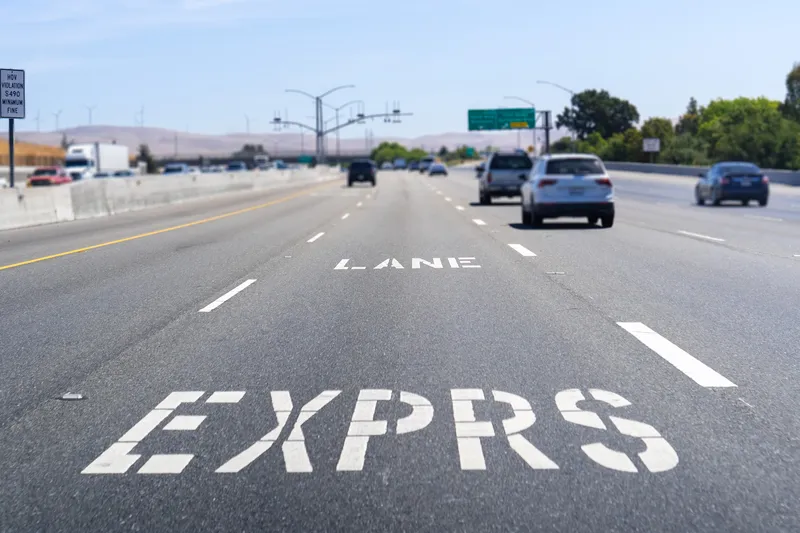A planned Washington Department of Transportation (WSDOT) study could make tolling on interstate-90 bridges over Lake Washington and across Mercer Island all but inevitable. Tolling on the state route 520 floating bridge began about a year ago and transportation officials have been closely monitoring two factors: the routes that drivers are now using and the cost to replace the aging 520 bridge. In response, the state legislature last session asked for a new environmental study to review the affects of toll
January 2, 2013
Read time: 3 mins
A planned 451 Washington State Department of Transportation (WSDOT) study could make tolling on interstate-90 bridges over Lake Washington and across Mercer Island all but inevitable.
Tolling on the state route 520 floating bridge began about a year ago and transportation officials have been closely monitoring two factors: the routes that drivers are now using and the cost to replace the aging 520 bridge. In response, the state legislature last session asked for a new environmental study to review the affects of tolling on I-90 between interstate 5 and interstate 405.
“What we will be doing early in 2013 is studying the tolling of I-90,” said Craig Stone, assistant secretary for the WSDOT toll division.
A WSDOT-proposed time line of the study has planned public scoping meetings in early 2013 and a complete environmental impact study by early 2014, which could then allow approval of potential tolls in 2014. The state could then begin collecting the charge in 2015 or 2016.
The overall cost of the 520 replacement project is estimated at US$4.128 billion, a decline from US$4.6 billion, but the state still needs to find US$1.4 billion. Meanwhile, WSDOT's Stone said at a Mercer Island public meeting last month that congestion has increased on Interstate 5, Interstate 90 and State Route 522 as drivers avoid tolls on SR 520.
Traffic on I-90 has increased, on average, 13 percent over pre-520 toll levels, and I-90 travel times are three minutes longer on average during the peaks, said Stone. The state can't afford to come up with the rest of the money by asking the federal government for earmarks. "The days of 90 percent of federal dollars coming in to finance highways in our state are basically over," he said.
WSDOT spokesperson Michell Mouton pledged that no decision has yet been made on whether or not to toll I-90. But the transportation agency must carry out the wishes of the state legislature, which s them to perform an environmental assessment and engage the public in communities that border Lake Washington. "It's not just tolling for tolling's sake," she said. "We have to look at tolling on I-90 to help with the 520 floating bridge ... one affects the other. People will have the opportunity to engage and provide input to the study. We're looking at tolling as a strategy."
Mouton also said that no decision had been made on changing access to high occupancy vehicle (HOV) lanes to and from Mercer Island, which currently allow single-occupancy vehicle access on the I-90 express lanes.
Tolling on the state route 520 floating bridge began about a year ago and transportation officials have been closely monitoring two factors: the routes that drivers are now using and the cost to replace the aging 520 bridge. In response, the state legislature last session asked for a new environmental study to review the affects of tolling on I-90 between interstate 5 and interstate 405.
“What we will be doing early in 2013 is studying the tolling of I-90,” said Craig Stone, assistant secretary for the WSDOT toll division.
A WSDOT-proposed time line of the study has planned public scoping meetings in early 2013 and a complete environmental impact study by early 2014, which could then allow approval of potential tolls in 2014. The state could then begin collecting the charge in 2015 or 2016.
The overall cost of the 520 replacement project is estimated at US$4.128 billion, a decline from US$4.6 billion, but the state still needs to find US$1.4 billion. Meanwhile, WSDOT's Stone said at a Mercer Island public meeting last month that congestion has increased on Interstate 5, Interstate 90 and State Route 522 as drivers avoid tolls on SR 520.
Traffic on I-90 has increased, on average, 13 percent over pre-520 toll levels, and I-90 travel times are three minutes longer on average during the peaks, said Stone. The state can't afford to come up with the rest of the money by asking the federal government for earmarks. "The days of 90 percent of federal dollars coming in to finance highways in our state are basically over," he said.
WSDOT spokesperson Michell Mouton pledged that no decision has yet been made on whether or not to toll I-90. But the transportation agency must carry out the wishes of the state legislature, which s them to perform an environmental assessment and engage the public in communities that border Lake Washington. "It's not just tolling for tolling's sake," she said. "We have to look at tolling on I-90 to help with the 520 floating bridge ... one affects the other. People will have the opportunity to engage and provide input to the study. We're looking at tolling as a strategy."
Mouton also said that no decision had been made on changing access to high occupancy vehicle (HOV) lanes to and from Mercer Island, which currently allow single-occupancy vehicle access on the I-90 express lanes.








